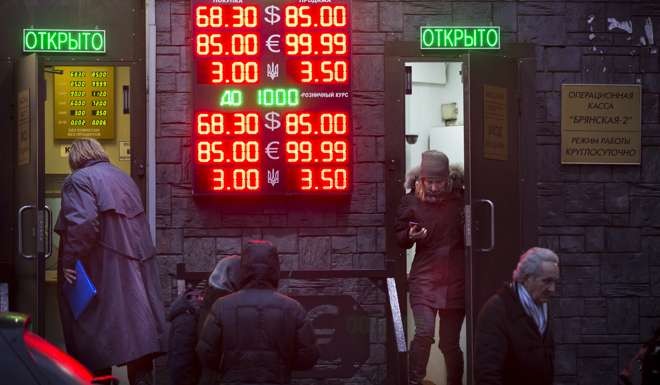Harbin Bank leads US$1.5 billion syndicated loan to Russian state bank, offering lifeline amid EU sanctions

Harbin Bank Co said it is leading a group of Chinese lenders to provide 10 billion yuan (US$1.5 billion) in syndicated loans to Russia’s state-run development bank, as it looks north of the border for business.
The loan to Russia’s State Corporation Bank for Development & Foreign Economic Affairs, also known as Vnesheconombank (VEB), will be used for a range of unspecified investment projects for three years, with an option to extend them for another three years, according to a report by SKRIN Newswire. However, the bank’s official statement said the funds will be earmarked for Sino-Russian trades and infrastructure developments.
“This deal marks the first collaboration between Chinese regional commercial banks and a Russian policy bank,” said Harbin Bank’s chairman Guo Zhiwen. “It will open a new chapter in our syndicate in financing foreign trades.”
Harbin Bank, based in China’s northeastern rust belt industrial province of Heilongjiang, is looking to China’s northern neighbour for growth, as it faces increasing bad loans from shuttering state factories and industries in its home base. Concurrently, bigger lenders like the Industrial & Commercial Bank of China and Bank of China are pursuing so-called baikalbonds, or yuan-denominated debt issued in Russia to fund business investments across the Sino-Russia border.
“This is not a surprising development. While Russia’s economy had become more challenged in recent years with the dropping of oil prices and the tensions with US and Europe, mainland banks have had close partnerships lending into Russia. China has been Russia’s key source of funds with central government’s approval during these years,” said Vicks Poon, Hong Kong-based head of investment advisory at Fubon Bank.

Poon said the loans are mostly fixed in yuan or roubles, rather than in dollars, so the two sides may avoid currency volatilities.
“The startup stage of Harbin’s Sino-Russian business will soon be completed and the earnings contribution of the segment should increase gradually going forward,” said Johannes Au, Hong Kong-based banking analyst at ABC International, a securities arm of the Agricultural Bank of China, who sees Harbin’s push into Russia as a welcome development while asset quality in Heilongjiang is still deteriorating.
